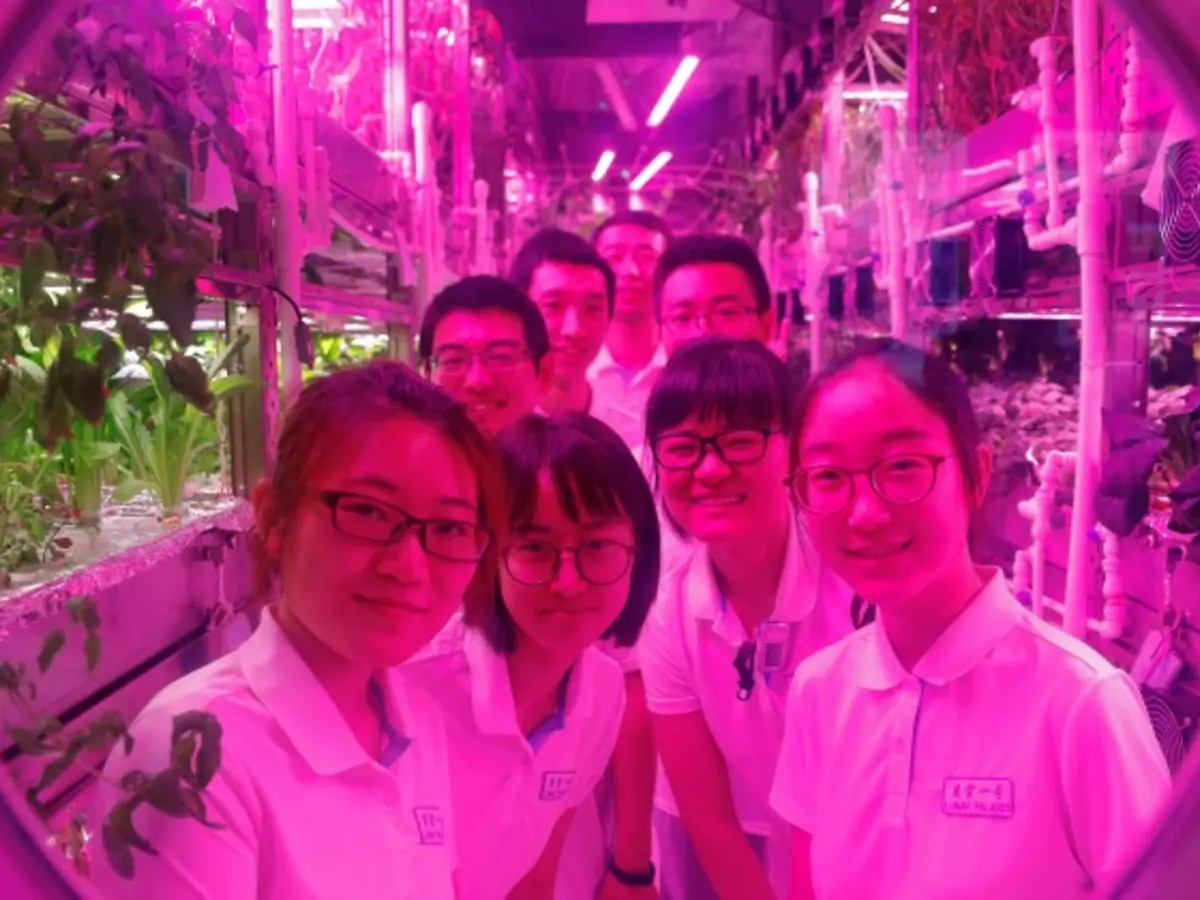China's Locking Four Students Inside A Space Station For 200 Days Where Everything Is Recycled
Four students from Beijing¡¯s University of Aeronautics & Astronautics are conducting a huge experiment on themselves. They¡¯re going to find out just how it feels to live in a space station or on a space colony on a remote planet.

China¡¯s taking its space ambitions very seriously.
Throwing out cute, docile guinea pigs, it¡¯s throwing in a bunch of humans inside a huge tin box, locking them inside for close to seven months. All in the name of science.

REUTERS / The enthusiastic volunteers... before being locked inside the space station vault for 200 days!
Four students from Beijing's University of Aeronautics & Astronautics are conducting a huge experiment on themselves. They¡¯re going to find out just how it feels to live in a space station or on a space colony on a remote planet. Where everything from urine, oxygen, plant and food needs to be recycled carefully. No pressure, eh?
The students entered the space station simulator located inside two bunkers in a suburb of Beijing yesterday, aiming to self-sustain the next 200 days in the isolated habitat.

REUTERS / Space vegetation or some sort of weed?
That's what the Lunar Palace-1 is there for -- to see if humans can successfully live inside of it, without going completely bonkers!
According to Liu Hong, a professor at Beijing University of Aeronautics and Astronautics and the project's principal architect, everything physically needed for humans to survive inside the Lunar Palace-1 has been carefully calculated and made available inside, as per a Reuters report.
"We've designed it so the oxygen (produced by plants at the station) is exactly enough to satisfy the humans, the animals, and the organisms that break down the waste materials," she said.
But often the most challenging aspect of the 200 day challenge isn¡¯t so much physical as it¡¯s mental. Humans living in confined spaces for a long period of time can suffer from psychological side effects which could be detrimental to their overall health. A fact that Prof. Liu Hong is acutely aware of. "They can become a bit depressed," Liu said.

REUTERS / They're smiling... for now. Poor souls!
For instance, before locking in the four students yesterday, Liu Hui, a student who had spent an initial 60-day inside the Lunar Palace-1 spoke about the mental challenges of getting stuck inside. She said that she sometimes "felt a bit low" after a day's work during her 60-day stay inside the mock Chinese space station.
China has plans to send a probe to the dark side of the moon by 2018 and put astronauts on the moon by 2036. This Lunar Palace 365 experiment is crucial to allow them to that.
So what if it requires volunteers to live in a sunlight-deprived mock space station where they have no choice but to get along with fellow campers? Right?!
